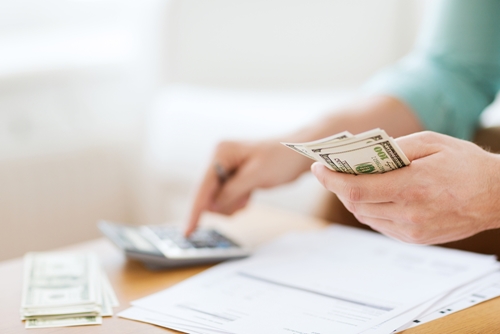
With mid-April just around the corner, your clients only have a few weeks left to file their federal tax returns without being penalized. While most taxpayers will receive a refund from the Internal Revenue Service, it generally takes around 21 days before they get a check in the mail.
Despite this less-than-timely arrival, many have already made plans on what they intend to do with their return – and it's not what you might expect, according to the results of a newly released survey.
Only 6 percent of Americans who plan on receiving a tax refund from the IRS this year will use it to splurge on a desirable purchase, a recent poll conducted by financial information website Bankrate found. Instead, approximately 90 percent intend to put these funds toward something that will provide delayed gratification, as opposed to immediate. Specifically, more than two-thirds plan on using it to invest or save, with 29 percent applying their refund to pay the bills, such as utilities or grocery shopping. Approximately 1 in 4 – 27 percent – will use it to reduce their debt load.
Baby boomers least likely to be in debt
Debt relief is a common New Year's resolution that Americans have, as several polls indicated this past year before the ball dropped in New York City's Times Square. It's little wonder, as nearly 40 percent of millennials say they live paycheck to paycheck, according to polling data from Gallup. Baby boomers are the least likely to be in this type of financial scrap, with 33 percent indicating that they don't have enough money on hand to live free from financial stress.
However, it seems that individual with back payments are learning from the err of their ways. The share of respondents expecting to invest or save their refund is its highest since 2010, the first year Bankrate conducted the poll. The same can be said for those who intend to use it on bill payments.
"66 percent of millennials expect to get a refund from the IRS this year."
Millennials have high expectations about receiving a refund
Of course, refund use is contingent upon their receiving money back from the IRS, and among millennials, most are anticipating they'll get something. Approximately two-thirds of 18- to 35-year-old respondents in the poll believe they'll receive money back from the IRS. However, their older peers aren't as confident. Just 34 percent of baby boomers believe a refund is in the cards and only 26 percent of filers older than 70 feel similarly.
Bankrate.com's Sarah Berger noted that many millennials have already filed their tax returns, and contrary to popular belief, they're the ones most likely to be using their cash for practical purposes.
"This shows a sense of responsibility and overall financial savviness among young adults," Berger explained. "They're setting up a solid foundation for their future financial selves. It can be tempting to splurge with that refund, but saving it is so much smarter."
She added that those who plan on saving their refund should consider it an investment in their financial well-being.
How much money will taxpayers be getting back? This won't be known for certain until later this year, but if history is any guide, the average is approximately $2,900, according to The Motley Fool.
The earlier your clients file their taxes, the sooner they'll receive their refund. However, for those who are waiting it out until the last minute, they're in luck. GFD has helpful federal income tax tables that they can use, giving them an estimate of what percentage of their income is taxed based on their annual salary.



